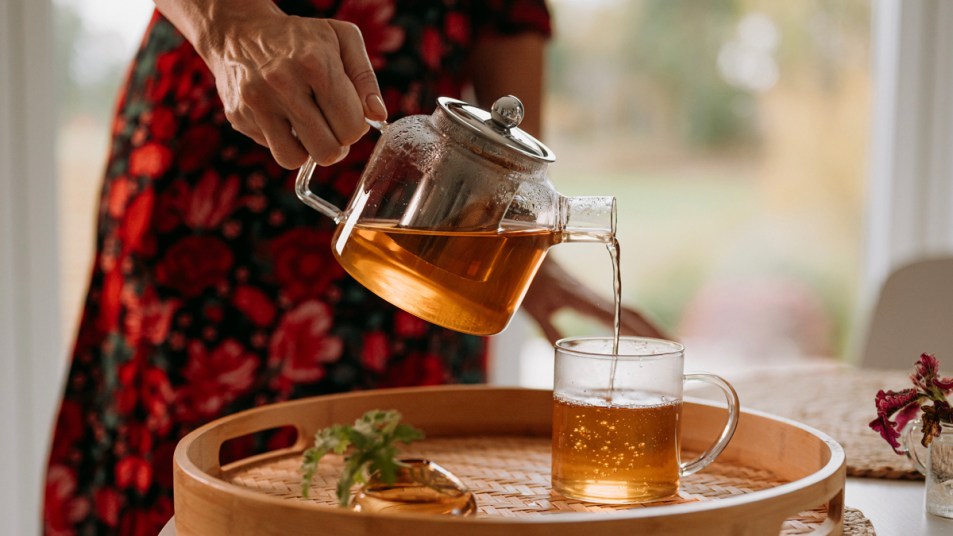Sipping This Delicious Brew May Help Prevent Muscle Loss as You Age

Looking for ways to prevent muscle loss that don’t involve working out? Green tea may be the key.
That’s the buzz from researchers at West Virginia University, who hypothesized that green tea extract would improve muscle recovery in rats. (Why rats? They are very similar to humans genetically!) Study leaders also hoped to prove that green tea can be used as an at-home treatment for older adults who suffer from age-related muscle loss and strength.
Understanding the Research
During the study published in the Journal of Applied Physiology, investigators separated 60 lab rats into three groups. The first was a control group, and the second group had their hind legs suspended (so they could only use their arms to move). In the third group, the rats had their hind legs suspended as well, but then had 14 days of recovery with no leg suspension.
Why did the researchers do this? By eliminating some of the animals’ movements, investigators could study how green tea affected the recovery of sedentary muscles, thereby mimicking the sedentary lifestyles of older men and women.
Animals in each group were then fed either one milliliter of water or one milliliter of green tea extract per day. After analyzing the muscle tissues, researchers determined that green tea did not necessarily improve the recovery of muscle function or mass. However, animals that received the extract lost 14 percent less muscle overall than those that did not receive it.
The positive effects of green tea on muscle loss have been reported by other investigators, too! One study performed in 2013 found that certain nutrients in green tea reduce muscle inflammation and speed up recovery times after exercise. Another study from 2011 showed that those same nutrients can help sedentary muscles retain strength.
Why Green Tea May Help Prevent Muscle Loss
So, which mighty nutrients in green tea are responsible for preventing muscle loss? According to all three studies mentioned above, it’s the polyphenols. These naturally-occurring organic compounds have numerous health benefits, including the ability to reduce inflammation and prevent oxidative stress on cells. Polyphenols may also lower the risk of developing certain cancers and cardiovascular diseases.
Catechins, which are a group of polyphenols, may have particularly beneficial effects on muscle inflammation. These powerful antioxidants can help prevent cell damage by halting the formation of free radicals in the body. (Free radicals are compounds created as your body converts food into energy. They can cause a range of aging symptoms.)
Catechins are far more abundant in green tea than other teas; the National Center for Biotechnology Information states that a little over one cup of brewed green tea contains about 50-100 mg of catechins. Several sources suggest drinking 3-5 cups of green tea per day to reap the benefits of the beverage.
However, you’ll probably want to substitute at least some caffeinated green tea for decaf. Too much caffeine can cause anxiety, an upset stomach, headaches, or sleep deprivation. Catechins can also make it difficult for your body to absorb iron from other foods, so it is important not to consume too much green tea. You may try drinking your tea between meals instead of during to make it easier for your body to absorb iron.
The bottom line? Green tea can’t replace a healthy dose of exercise. Still, it may prevent muscle loss and can definitely improve your overall health. With an extra cup every now and then, this tasty, soothing beverage may soon become your go-to nutrient booster!
















